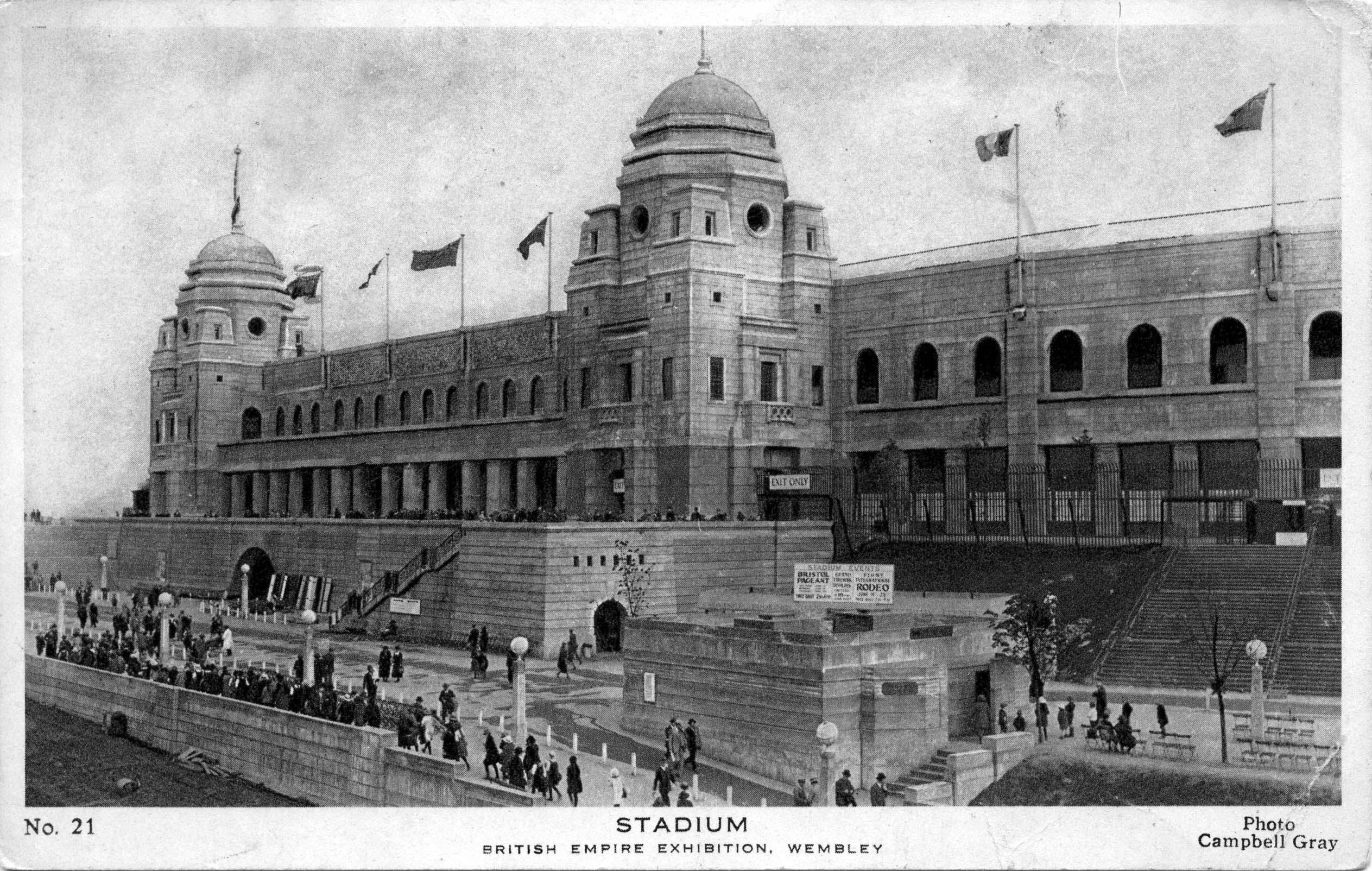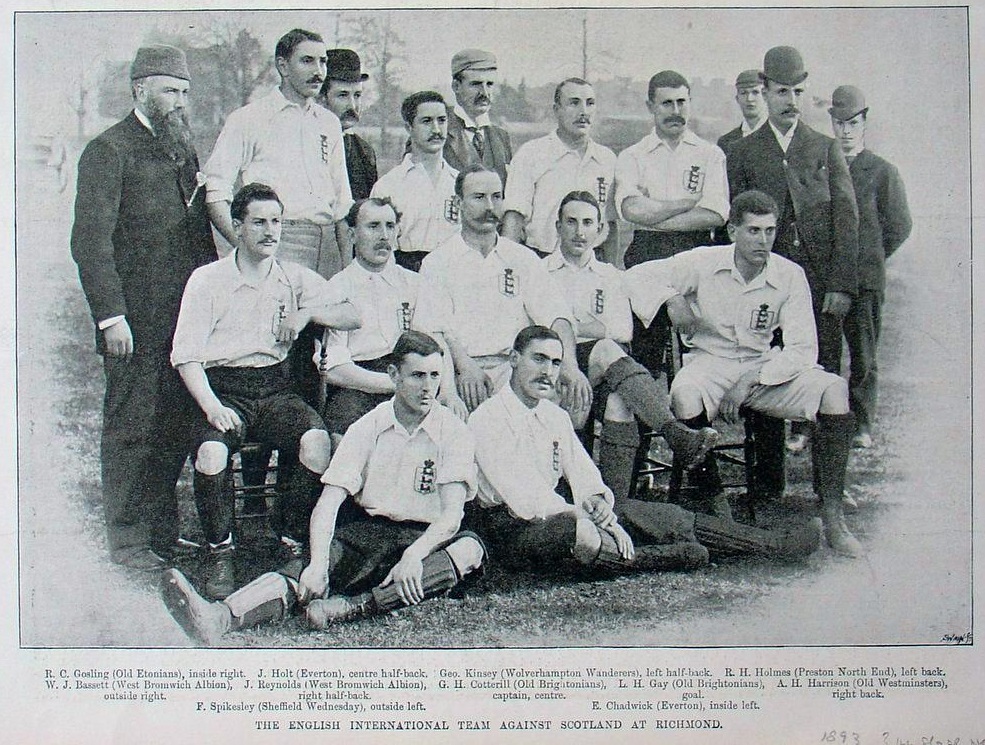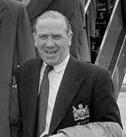|
1942–43 In Scottish Football
The 1942–43 season was the 70th season of competitive football in Scotland and the fourth season of special wartime football during World War II. Overview Between 1939 and 1946 normal competitive football was suspended in Scotland. Many footballers signed up to fight in the war and as a result many teams were depleted, and fielded guest players instead. The Scottish Football League and Scottish Cup were suspended and in their place regional league competitions were set up. Appearances in these tournaments do not count in players' official records. Honours League competition was split into two regional leagues, the Southern League and the North-Eastern League. No country-wide cup competition took place, the Glasgow Cup, East of Scotland Shield and Renfrewshire Cup continued, and Southern and North-Eastern League Cups were competed for, the Southern League Cup would later form the basis of the League Cup. The Summer Cup was played for by Southern League teams during May ... [...More Info...] [...Related Items...] OR: [Wikipedia] [Google] [Baidu] |
Flag Of Scotland With Football
A flag is a piece of fabric (most often rectangular or quadrilateral) with a distinctive design and colours. It is used as a symbol, a signalling device, or for decoration. The term ''flag'' is also used to refer to the graphic design employed, and flags have evolved into a general tool for rudimentary signalling and identification, especially in environments where communication is challenging (such as the maritime environment, where semaphore is used). Many flags fall into groups of similar designs called flag families. The study of flags is known as "vexillology" from the Latin , meaning "flag" or "banner". National flags are patriotic symbols with widely varied interpretations that often include strong military associations because of their original and ongoing use for that purpose. Flags are also used in messaging, advertising, or for decorative purposes. Some military units are called "flags" after their use of flags. A ''flag'' (Arabic: ) is equivalent to a brigad ... [...More Info...] [...Related Items...] OR: [Wikipedia] [Google] [Baidu] |
Summer Cup (Scottish Football)
The Summer Cup was a Scottish football competition open to teams in the top division, first of the wartime Southern League from 1940 to 1945 and then of the Scottish League from 1963 to 1965. History When the competition was first introduced in 1940 it was organised by the Southern League and was one of two wartime cup competitions run by the League, along with the Southern League Cup. The competition ran from May to June, when the league season had already finished. It was discontinued after 1945. Just as the one-off Scottish War Emergency Cup of 1940 was a predecessor of sorts to the wartime Summer Cup, the 1946 Victory Cup could be seen as its successor due to the similar format used, although the trophy actually used for the Victory Cup was that of the Southern League Cup, which did have a 1946 edition completed a few weeks earlier. The Summer Cup was reintroduced in 1963 as a national cup competition for Scottish Football League Division One clubs because running ... [...More Info...] [...Related Items...] OR: [Wikipedia] [Google] [Baidu] |
Willie Corbett
William Risk Corbett (31 August 1922 – 31 July 2011) was a Scottish footballer who played as a centre-half. Corbett made 60 official appearances for Celtic F.C., Celtic from 1946 to 1948 (having joined in 1941 during wartime) and also played for Preston North End F.C., Preston North End, Leicester City F.C., Leicester City, Yeovil Town F.C., Yeovil Town, Dunfermline Athletic F.C., Dunfermline Athletic and Greenock Morton F.C., Greenock Morton. He also appeared as a guest player for West Ham United F.C., West Ham United in World War II. His two brothers, David Corbett (footballer born 1910), David and Norman Corbett, Norman, were also footballers. D ... [...More Info...] [...Related Items...] OR: [Wikipedia] [Google] [Baidu] |
Bill Shankly
William Shankly (2 September 1913 – 29 September 1981) was a Scottish football player and manager, who is best known for his time as manager of Liverpool. Shankly brought success to Liverpool, gaining promotion to the First Division and winning three League Championships and the UEFA Cup. He laid foundations on which his successors Bob Paisley and Joe Fagan were able to build by winning seven league titles and four European Cups in the ten seasons after Shankly retired in 1974. A charismatic, iconic figure at the club, his oratory stirred the emotions of the fanbase. In 2019, 60 years after Shankly arrived at Liverpool, Tony Evans of ''The Independent'' wrote, "Shankly created the idea of Liverpool, transforming the football club by emphasising the importance of the Kop and making supporters feel like participants". Shankly came from a small Scottish mining community and was one of five brothers who played football professionally. He played as a ball-winning right-half and wa ... [...More Info...] [...Related Items...] OR: [Wikipedia] [Google] [Baidu] |
Andy Beattie
Andrew Beattie (11 August 1913 – 20 September 1983) was a Scottish professional football player and manager. He was the first manager of the Scottish national team. Playing career Beattie was born in Kintore, Aberdeenshire and was employed as a young quarry-man at the Inverurie Loco Works. He was soon to join the Inverurie Loco Works FC where he established himself as an accomplished full-back before attracting the interest of English First Division club Preston North End. They paid £135 for him in March 1935, but World War II was to sadly interrupt his career and he made just 125 Football League appearances for the Lilywhites, scoring five goals, before retiring from his only professional club in March 1947. The war also curtailed a promising international career which saw him awarded seven Scotland caps between April 1937 and December 1938. In spite of spending part of his military service abroad Beattie was also to gain a further five unofficial caps for Scotland du ... [...More Info...] [...Related Items...] OR: [Wikipedia] [Google] [Baidu] |
Jimmy Carabine
James Carabine (23 November 1911 – 2 December 1987) was a Scottish association football, footballer, who played as a Defender (association football), right back. Career In the club game, Carabine was most closely associated with Third Lanark A.C., Third Lanark, serving as a player from 1931 to November 1946 and then taking over as manager, until May 1950. As a player, he won the 1934–35 Scottish Division Two title a year after suffering relegation from the top tier, then featured on the losing side in the 1936 Scottish Cup Final.Rangers Retain Scottish Cup The Glasgow Herald, 20 April 1936 In the three major competitions he made 262 appearances and scored 19 goals for the club. As an international, Carabine represented Scotland national football ... [...More Info...] [...Related Items...] OR: [Wikipedia] [Google] [Baidu] |
Jerry Dawson (footballer Born 1909)
James "Jerry" Dawson (30 October 1909 – 19 January 1977) was a Scottish footballer who played as a goalkeeper and spent most of his career with Rangers. Career Born in Falkirk, Dawson's position as a goalkeeper saw him nicknamed 'Jerry' after the famous English custodian with whom he shared a surname. He began his career playing with local Junior side Camelon, before turning professional with Rangers in November 1929. He spent the next 16 years with the Ibrox side, winning the Scottish league five times and the Scottish Cup twice. He made 236 league appearances for Rangers and was capped 14 times by Scotland between 1934 and 1939. He also appeared 11 times for the Scottish Football League XI. Dawson moved to home-town club Falkirk in 1945 and retired at the end of the 1948–49 season. After a spell as a journalist with the '' Daily Record'', he moved into coaching when appointed East Fife's manager in July 1953. He guided his new side to the League Cup within months of h ... [...More Info...] [...Related Items...] OR: [Wikipedia] [Google] [Baidu] |
Wembley Stadium (1923)
The original Wembley Stadium (; originally known as the Empire Stadium) was a stadium in Wembley, London, best known for hosting important football matches. It stood on the same site now occupied by its successor. Wembley hosted the FA Cup final annually, the first in 1923, which was the stadium's inaugural event, the League Cup final annually, five European Cup finals, the 1966 World Cup Final, and the final of Euro 1996. Brazilian footballer Pelé once said of the stadium: "Wembley is the cathedral of football. It is the capital of football and it is the heart of football", in recognition of its status as the world's best-known football stadium. The stadium also hosted many other sports events, including the 1948 Summer Olympics, rugby league's Challenge Cup final, and the 1992 and 1995 Rugby League World Cup Finals. It was also the venue for numerous music events, including the 1985 Live Aid charity concert. In what was the first major WWF (now WWE) pay-per-view ... [...More Info...] [...Related Items...] OR: [Wikipedia] [Google] [Baidu] |
England National Football Team
The England national football team has represented England in international Association football, football since the first international match in 1872. It is controlled by The Football Association (FA), the governing body for football in England, which is affiliated with UEFA and comes under the global jurisdiction of world football's governing body FIFA. England competes in the three major international tournaments contested by European nations: the FIFA World Cup, the UEFA European Championship, and the UEFA Nations League. England is the joint oldest national team in football having played in the world's 1872 Scotland v England football match, first international football match in 1872, against Scotland national football team, Scotland. England's home ground is Wembley Stadium, London, and its training headquarters is St George's Park National Football Centre, St George's Park, Burton upon Trent. The team's manager is Gareth Southgate. England won the 1966 FIFA World Cup F ... [...More Info...] [...Related Items...] OR: [Wikipedia] [Google] [Baidu] |
Scotland National Football Team
The Scotland national football team gd, Sgioba Ball-coise Nàiseanta na h-Alba sco, Scotland National Fitbaa Team represents Scotland in men's international football and is controlled by the Scottish Football Association. It competes in the three major professional tournaments: the FIFA World Cup, UEFA Nations League and the UEFA European Championship. Scotland, as a country of the United Kingdom, is not a member of the International Olympic Committee, and therefore the national team does not compete in the Olympic Games. The majority of Scotland's home matches are played at the national stadium, Hampden Park. Scotland is the joint oldest national football team in the world, alongside England, whom they played in the world's first international football match in 1872. Scotland has a long-standing rivalry with England, whom they played annually from 1872 until 1989. The teams have met only eight times since then, most recently in a group match during Euro 2020 in June 2021. ... [...More Info...] [...Related Items...] OR: [Wikipedia] [Google] [Baidu] |
Hibernian F
Hibernian may refer to: * Of Hibernia, Latin name for Ireland; hence ** Irish (other) Hibernian, Hibernians or The Hibernian may refer to: Sports clubs * Hibernian F.C., a Scottish football club, founded 1875 * Hibernian W.F.C., a Scottish women's football club, founded 1999, affiliated with Hibernian F.C. * Hibernians F.C., a Maltese football club, founded 1922 * Cambuslang Hibernian F.C., a Scottish football club, active 1884–1908 * Cork Hibernians F.C., an Irish soccer club, active 1957–1977 * Dundee Hibernian F.C., a Scottish football club, founded 1909 (renamed Dundee United in 1923) * Duntocher Hibernian F.C., a Scottish football club, active 1894–1980 * Maryhill Hibernians F.C., a Scottish football club, active 1923–1967 (renamed Maryhill Harp in 1939) * Navan Hibernians GAC, an Irish hurling club active in 1902 * Philadelphia Hibernian, an American soccer club, active 1909–1921 * Seattle Hibernian, an American soccer club, successively named Seat ... [...More Info...] [...Related Items...] OR: [Wikipedia] [Google] [Baidu] |
Dundee United F
Dundee (; sco, Dundee; gd, Dùn Dè or ) is Scotland's fourth-largest city and the 51st-most-populous built-up area in the United Kingdom. The mid-year population estimate for 2016 was , giving Dundee a population density of 2,478/km2 or 6,420/sq mi, the second-highest in Scotland. It lies within the eastern central Lowlands on the north bank of the Firth of Tay, which feeds into the North Sea. Under the name of Dundee City, it forms one of the 32 council areas used for local government in Scotland. Within the boundaries of the historic county of Angus, the city developed into a burgh in the late 12th century and established itself as an important east coast trading port. Rapid expansion was brought on by the Industrial Revolution, particularly in the 19th century when Dundee was the centre of the global jute industry. This, along with its other major industries, gave Dundee its epithet as the city of "jute, jam and journalism". Today, Dundee is promoted as "One City, ... [...More Info...] [...Related Items...] OR: [Wikipedia] [Google] [Baidu] |





